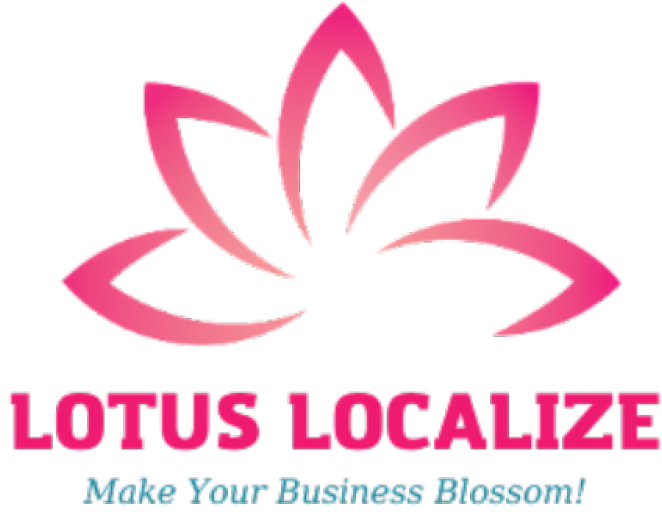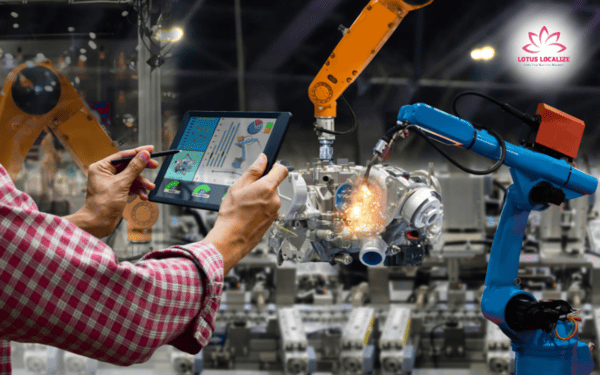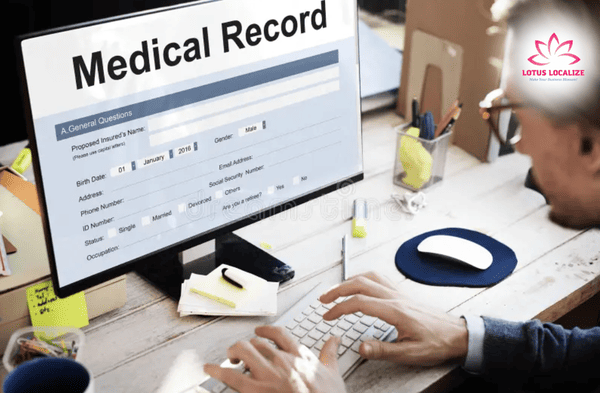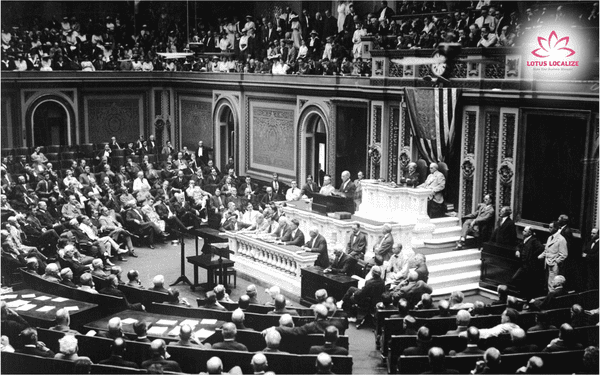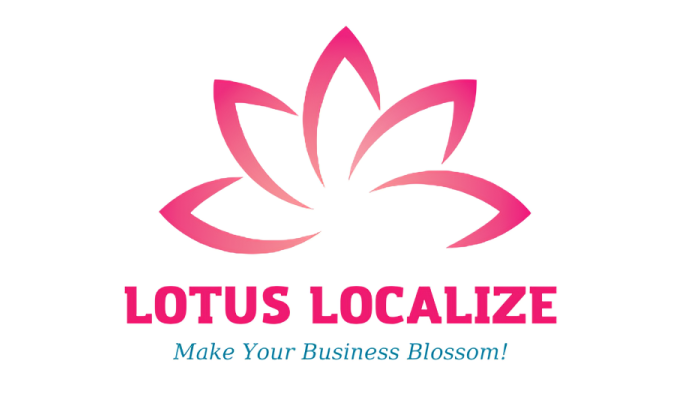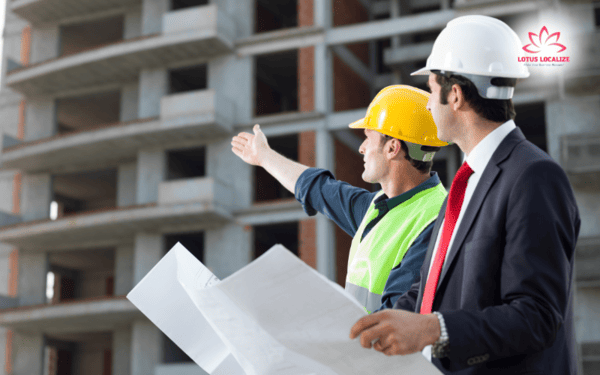
Why a construction translation service is essential for international building success
Clear communication is essential in construction, where even minor misunderstandings can lead to costly mistakes. As projects grow in scale and complexity, involving multiple teams and technical disciplines, the need for accurate language support becomes critical.
A professional construction translation service ensures that every stakeholder—engineers, architects, contractors, and legal teams—works from the same clear, consistent information. In this article, we’ll explore what this service includes, which documents are involved, and how it helps keep multilingual construction projects on track and compliant.
What is a construction translation service?
A construction translation service refers to the professional translation of documents, plans, and communication materials used in the construction industry. Unlike general translation, it requires deep subject-matter expertise in engineering, architecture, safety compliance, and legal frameworks. Translators in this field must understand complex terminology, technical drawings, and project documentation that impact physical structures and human safety.

These services are used by a wide range of stakeholders:
- Real estate developers managing projects abroad
- Engineering and architecture firms collaborating with foreign partners
- Government agencies working on public infrastructure with international contractors
- Language service providers (LSPs) serving construction clients
Accurate translation ensures that every party involved in a project is literally on the same page—from bidding and design to execution and inspection.
Key documents typically translated in construction projects
Construction projects generate a wide range of critical documents. Below are some of the most commonly translated materials:
- Blueprints and architectural plans: These are often annotated with highly technical labels, symbols, and notes. Translating these elements requires not only linguistic skill but also visual literacy in architectural conventions.
- Technical specifications and safety manuals: Every construction site must adhere to strict safety standards and engineering guidelines. Translating technical documents and safety procedures ensures that local teams can comply with these rules, avoiding accidents and violations.

- Permits, contracts, and legal documents: Misinterpreting legal terms in contracts or building permits can result in litigation or fines. Legal translation for construction requires both legal and industry expertise.
- Project timelines and procurement reports: These documents are essential for scheduling, logistics, and supplier coordination. A clear, consistent translation helps multinational teams avoid costly delays and procurement issues.
In short, construction translation is more than just words—it’s about transforming the entire framework of a project into another language with zero loss in meaning.
Read more: How civil engineering translation supports global construction success
Why construction translation requires industry expertise
Unlike marketing or general business content, construction translation demands a deep understanding of industry-specific terminology and local regulations. Here’s why:
- Specialized terminology: Phrases like “post-tensioned slab,” “shear wall,” or “load-bearing capacity” have no room for ambiguity. Translators must be familiar with civil engineering and architectural concepts to convey these accurately.
- Compliance and safety: Regulations vary by country. A mistranslation in a fire safety code or electrical guideline could lead to project shutdowns or, worse, endanger lives.
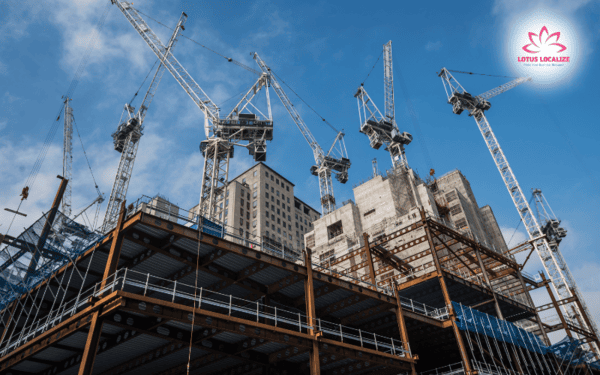
- Visual elements and units of measurement: Construction plans include measurements (metric vs. imperial), diagrams, and annotations that must be interpreted consistently. Errors in units or scale can be catastrophic.
- Multilingual team collaboration: Most global construction projects involve multilingual crews. Accurate translation allows for smooth onboarding, training, and daily operations across languages.
Because of these factors, many companies seek specialized providers offering both technical document translation and engineering translation expertise.
Industries that rely on construction translation
While all construction sectors benefit from quality translation, the following industries rely on it most frequently:
- Infrastructure and civil engineering: Projects like bridges, tunnels, and public transport networks often involve international funding and contractors. These large-scale endeavors require extensive multilingual documentation.
- Real estate development: From residential towers to commercial parks, real estate projects involving foreign investors or buyers must have marketing materials, contracts, and technical documents translated accurately.
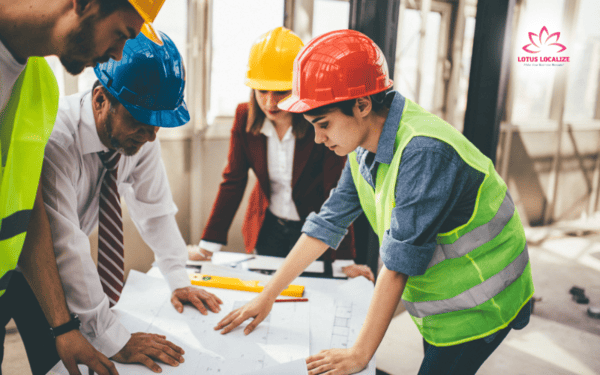
- Renewable energy projects: Wind farms, solar installations, and hydroelectric plants often involve partnerships between local governments and global energy firms. This requires translation of feasibility studies, equipment manuals, and installation guidelines.
- Oil, gas, and heavy industry: These sectors deal with highly technical and hazardous environments. Precision in translation is crucial for safety manuals, operating procedures, and compliance documents.
In each case, the construction translation service acts as a safeguard, ensuring the integrity of the project and the safety of its people.
Read more: How engineering specifications translation ensures accuracy and compliance in global projects
How to choose the right construction translation partner
Not all translation providers are equipped for the demands of the construction sector. Here’s what to look for when selecting a partner:
- Industry knowledge: Choose a provider with experience in both translation and construction. Ask for case studies or references within your industry.
- Native-speaking translators with technical expertise: It’s not enough to be fluent in the language. Translators should also have a background in architecture, engineering, or construction project management.
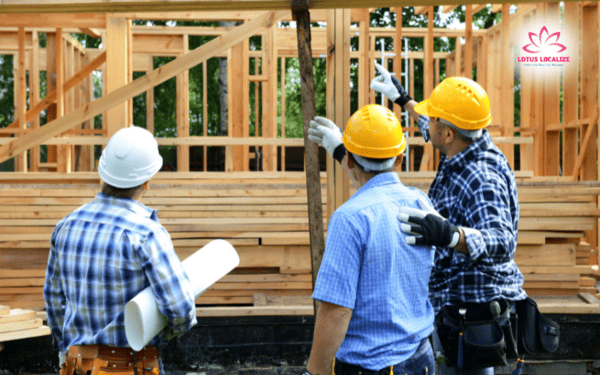
- Multilingual desktop publishing (DTP): Many construction documents include complex layouts and visuals. A translation provider with desktop publishing service capabilities ensures your translated materials preserve formatting and readability.
- Quality assurance processes: Look for a company that offers review cycles, terminology management, and proofreading by a second linguist. This minimizes the risk of critical errors.
- Scalability and turnaround time: Construction timelines are often tight. Your language partner should be able to handle urgent projects and high volumes without compromising on quality.
Partnering with the right translation provider can prevent costly misunderstandings, improve stakeholder trust, and streamline your international operations.
Let Lotus Localize support your multilingual construction projects
At Lotus Localize, we specialize in construction and technical translation services across 50+ languages. Our linguists are not just native speakers—they’re subject-matter experts in engineering, architecture, and legal compliance. We combine precision, scalability, and a flexible, client-first mindset to support global construction teams with fast turnarounds and reliable quality.
Whether you’re translating blueprints, compliance documents, or multilingual project plans, we’re here to help you build with clarity and confidence—no matter the language.
The modern construction industry is a global one—and language can either be a bridge or a barrier. A professional construction translation service plays a critical role in ensuring that every brick is laid according to plan, regardless of where the team comes from or what language they speak.
From legal contracts to architectural drawings, accurate translation helps avoid delays, protect safety, and maintain compliance. As construction projects become more international in nature, investing in high-quality translation isn’t just a smart decision—it’s a foundational one.
If you have any questions or need assistance with document translation services for many industries: life sciences translation, education translation, technology translation, financial translation, marketing translation, manufacturing translation, government translation,… and interpretation services: escort interpreting, simultaneous interpretation, remote interpretation, and localization services: software localization, game localization, app localization,… please contact Lotus Localize immediately at +84 866 224 968 or visit the website: lotus-localize.com for advice on the best solutions!
QUALITY PROMISE
Lotus Localize offers consistent, high-quality service delivery in all customer engagements. Our in-house translators and staff adhere to well-established business processes, allowing us to communicate properly, deliver on time, and surpass client expectations.
